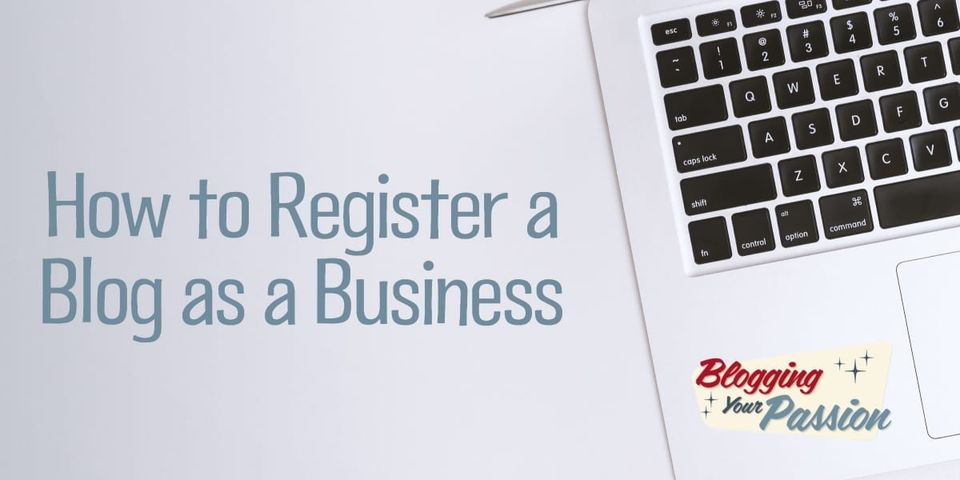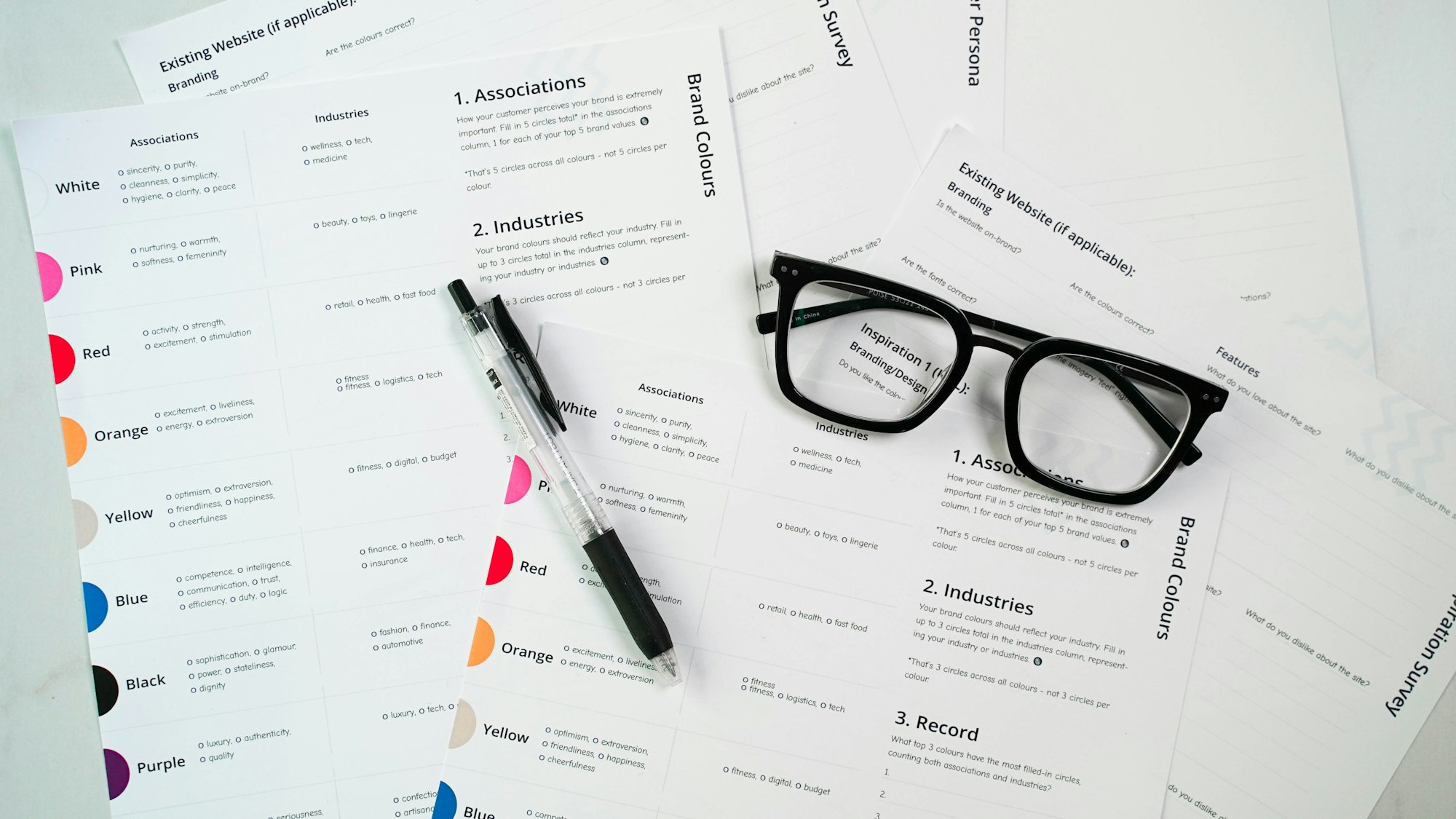How to Register a Blog as a Business

We recently got a question from a reader who was curious about when to formally turn his blog into a business. He writes:
So say I start making money via google adsense, youtube or blog. Say it becomes substantial, at what point would I create a business, DBA, etc?
Blogging for business is a powerful way to connect with your audience, build brand awareness, and drive consistent traffic to your website.
In this article, we'll explore the pros and cons of different business structures for bloggers, and help you understand the key factors to consider when choosing a structure.
Plus, we'll guide you through the steps to legally form your blogging business.
So, let's get started on this exciting journey together!
Table of Contents (click to expand)
What is a Business Entity?

When it comes to registering your blog as a business, it's important to understand what a business entity is.
There are several types of business entities to consider, such as sole proprietorship, partnership, limited liability company (LLC), corporation, and nonprofit organization.
Each type has its own unique characteristics and legal obligations, so it's crucial to determine the right business entity that suits your blog and its goals.
1. Sole Proprietorship
If you are considering registering your blog as a business, it is important to understand what a sole proprietorship is. A sole proprietorship is the simplest form of business entity, where you are the sole owner and have complete control over your blog.
However, it also means that you are personally liable for any debts or legal issues related to your blog. This means that your personal assets, such as your savings or property, could be at risk. It is crucial to separate your personal and business finances and protect your personal information when operating as a sole proprietorship.
| Pros | Cons | Considerations |
|---|---|---|
| Easy and inexpensive to set up | Unlimited personal liability | Keep personal and business finances separate |
| Complete control over your blog | Personal assets are at risk | Protect personal information |
| Flexibility in decision-making | Limited sources of funding | Plan for growth and scalability |
2. Partnership
To understand the different options for registering your blog as a business, it's important to explore the concept of a partnership as a business entity.
A partnership is a type of business structure where two or more individuals come together to run a business. In a partnership, the partners share the profits, losses, and responsibilities of the business.
It's important to note that a partnership doesn't provide limited liability protection like an S corporation or a limited liability company (LLC) does.
Before starting a blogging business, it's advisable to consult with a legal professional to determine the best business structure for your needs and to obtain any necessary business licenses.
3. Limited Liability Company (LLC)
You can consider registering your blog as a limited liability company (LLC), which is a type of business entity.
An LLC provides liability protection for your personal assets and separates your blog's activities from your individual finances.
By forming an LLC, you create a legal entity that can enter into contracts, open bank accounts, and hire employees.
Additionally, an operating agreement will outline the rights and responsibilities of the LLC members, providing structure and clarity to your business.
4. Corporation
When considering registering your blog as a business, it is important to understand what a corporation is as a business entity. A corporation is a type of business structure that is separate from its owners, providing limited liability protection.
It is created by filing articles of incorporation with the state and appointing a registered agent to handle legal matters. Seeking legal advice when choosing among different types of business structures is crucial to ensure you make the right decision for your blog's future.
5. Nonprofit Organization
If you're considering registering your blog as a business, it's important to understand what a nonprofit organization is as a business entity. Here's a quick rundown:
- A nonprofit organization is a type of business entity that's created for charitable, educational, or social purposes.
- It operates to benefit the public rather than individuals.
- Nonprofits are exempt from paying income taxes, but they still need to file certain forms with the IRS.
- To start a nonprofit, you'll need to choose a specific topic for your organization, register a unique blog name, and obtain a federal tax identification number (similar to a social security number).
6. B Corporation
Now let's explore the concept of a B Corporation, which is a specific type of business entity.
If you're considering registering your blog as a business, becoming a B Corporation might be worth considering. B Corporations, or B Corps, are businesses that prioritize social and environmental impact alongside profit.
Pros and Cons of Business Structures for Bloggers

Now let's talk about the pros and cons of different business structures for bloggers.
As a blogger, you have a few options to choose from, including sole proprietorship or partnership, limited liability company (LLC), corporation, nonprofit or B corporation, and doing business as (DBA).
Each structure has its own advantages and disadvantages, so it's important to carefully consider which one aligns best with your goals and needs.
Sole Proprietorship or Partnership
When considering whether to register your blog as a business, you should weigh the pros and cons of operating as a sole proprietorship or partnership.
Pros of a Sole Proprietorship:
- You have complete control over your blog and decision-making.
- You can deduct business expenses on your personal tax return.
Cons of a Sole Proprietorship:
- You're personally liable for any debts or legal issues related to your blog.
- It may be challenging to secure funding or partnerships.
Pros of a Partnership:
- You can share the workload and responsibilities with a partner.
- It may be easier to secure funding or attract potential partnerships.
Cons of a Partnership:
- You and your partner are jointly liable for any debts or legal issues.
- Decision-making may become more complicated due to differing opinions.
Limited Liability Company (LLC)
To understand the pros and cons of different business structures for bloggers, consider the option of forming a Limited Liability Company (LLC). An LLC provides the advantage of separating your personal assets from your blog's liabilities, offering protection in case of legal issues.
It allows you to open a separate business bank account and establish a professional identity. However, it's important to seek professional advice before deciding to register your blog as an LLC.
| Pros | Cons |
|---|---|
| Limited personal liability | More paperwork and formalities |
| Flexibility in management | Additional costs and fees |
| Easy transfer of ownership | State-specific regulations and requirements |
Corporation
Consider forming a corporation for your blog, as it offers its own set of advantages and disadvantages in terms of business structures for bloggers.
Advantages of a corporation:
- Limited liability protection, which separates your personal assets from your blog's debts and liabilities.
- Potential for tax benefits, such as deducting business expenses.
Disadvantages of a corporation:
- More complex and expensive to set up and maintain compared to other business structures.
- Additional legal and financial obligations that small business owners need to fulfill.
Nonprofit or B Corporation
If you're considering different business structures for your blog, you may want to explore the option of forming a nonprofit or B Corporation.
A nonprofit organization is focused on a specific cause and operates with the goal of benefiting the public.
On the other hand, a B Corporation, or Benefit Corporation, is a for-profit entity that's legally required to consider the impact of its decisions on society and the environment.
Registering your blog as a nonprofit or B Corporation can provide a sense of purpose and social responsibility to your business.
Doing Business As (DBA)
If you're exploring different business structures for your blog, one option to consider is doing business as (DBA), which has its own pros and cons for bloggers.
Pros of DBA for bloggers:
- Allows you to operate your blog under a different name, which can be beneficial for branding purposes.
- Provides a level of professionalism and legitimacy to your blog, which can attract more readers and potential partnerships.
Cons of DBA for bloggers:
- Requires additional paperwork and fees to register your DBA.
- May not offer the same legal protections as other business structures, such as an LLC or corporation.
Employer Identification Number (EIN)
You can obtain an Employer Identification Number (EIN) to help streamline your blog's business structure and operations.
Registering your blog as a business and obtaining an EIN can have several benefits. By doing so, you separate your personal income from your blog's earnings, which can help reduce your tax burden.
Additionally, having an EIN may allow you to open a separate bank account for your blog, making it easier to manage your finances as an independent contractor.
Key Factors to Consider When Choosing a Structure

When choosing a structure for your blog, there are several key factors to consider.
First, think about your business goals and vision - how do you want your blog to grow and evolve?
Second, consider the liability risks associated with each structure - how much personal risk are you willing to take on?
Third, think about the tax implications and costs of each structure - what level of complexity are you comfortable with?
Business Goals and Vision
When considering the structure for your blog as a business, it's important to carefully evaluate your business goals and vision. To help you make a decision, here are some key factors to consider:
- Financial goals: Determine if you want to make money through your blog and if you plan to be a full-time blogger or have other sources of income.
- Long-term vision: Consider your long-term plans for your blog, such as growing it into an online business or starting other ventures.
Liability Risks
To properly assess liability risks when selecting a structure for your blog as a business, it is essential to consider key factors. Understanding the potential risks involved can help you make informed decisions and protect yourself from legal and financial troubles.
Below is a table outlining some contextually relevant liability risks to consider when registering your blog as a business.
| Liability Risks | Description | Mitigation Strategies |
|---|---|---|
| Intellectual Property Infringement | Unauthorized use of copyrighted material | Obtain permission or use content under fair use |
| Defamation | Making false statements that harm someone's reputation | Fact-check information and avoid making false claims |
| Privacy Violation | Mishandling personal information of visitors | Implement strong security measures and comply with data protection laws |
| Contract Disputes | Breach of contract with clients or partners | Clearly define terms in contracts and seek legal advice if needed |
Tax Implications
Consider key factors for tax implications when choosing a structure for your blog as a business. To help you make an informed decision, here are some important things to keep in mind:
- Double taxation: Certain business structures may subject you to double taxation, where income is taxed at both the corporate and personal level.
- Affiliate marketing: If your blog relies heavily on affiliate links, you'll want to choose a structure that allows you to maximize tax deductions and benefits.
- Content creators: Different structures offer varying tax advantages for content creators, so it's crucial to understand how each option can impact your personal finance.
Costs and Complexity
As you weigh the options for structuring your blog as a business, it's important to carefully evaluate the costs and complexities involved.
Registering your blog as a business may come with certain costs, such as filing fees and legal expenses.
The complexity of the process may vary depending on the structure you choose, such as a single-member LLC.
It's also crucial to consider obtaining general liability insurance to protect yourself from potential risks and legal issues.
Steps to Legally Form Your Blogging Business

Now that you've decided to legally form your blogging business, there are a few important steps to take.
First, choose a business blog name that reflects your brand and is available for registration.
Then, pick a structure for your business, such as a sole proprietorship, partnership, or LLC, and register your entity accordingly.
Don't forget to obtain any necessary licenses and permits, open a business bank account, and set up accounting and insurance to ensure your business is compliant and protected.
Choose a Business Name
To legally form your blogging business, start by selecting a unique and memorable name that represents your brand. When choosing a business name, consider the following:
- Reflect your niche: Make sure your name aligns with the content of your blog section.
- Research availability: Check if the name is already taken to avoid legal action.
- Consider legal structure: If you plan on registering your blog as a business, consider forming a single member LLC.
Pick a Structure and Register Your Entity
You should choose a structure and register your entity to legally form your blogging business.
Selecting the right structure is crucial as it determines your business's legal and financial obligations. Common options include sole proprietorship, partnership, limited liability company (LLC), and corporation.
Once you've decided on a structure, it's important to register your entity with the appropriate government agencies. This ensures that your blog is recognized as a legitimate business and grants you certain legal protections.
Obtain Relevant Licenses and Permits
To legally form your blogging business, you'll need to obtain relevant licenses and permits. This ensures that you're operating within the legal boundaries and protecting your business. Here are some steps to help you obtain the necessary licenses and permits:
- Research: Find out what licenses and permits are required for your type of blogging business.
- Apply: Complete the necessary applications and submit them to the relevant authorities.
- Renew: Keep track of expiration dates and renew your licenses and permits as needed.
Open a Business Bank Account
Opening a business bank account is an essential step in legally forming your blogging business. Not only does it help you keep your personal and business finances separate, but it also adds a professional touch to your blog.
By having a dedicated business account, you can easily track your income and expenses, manage cash flow, and build credibility with clients and potential partners.
To give you a better understanding, here's a table highlighting the benefits of opening a business bank account:
Benefits of Opening a Business Bank Account
- Separation of personal and business finances
- Improved financial management
- Credibility and professionalism
- Easy tracking of income and expenses
- Simplified tax reporting
Set Up Accounting and Insurance
To legally form your blogging business, it's important to set up accounting and insurance. Here are some steps to help you with this process:
Accounting
- Keep track of your income and expenses
- Use accounting software or hire a professional to help you with bookkeeping
Insurance
- Consider getting liability insurance to protect yourself from potential lawsuits
- Research different insurance options and find one that suits your blogging business's needs.
Build Your Brand Identity
How can you establish a strong brand identity for your blogging business?
Building your brand identity is crucial to standing out in the crowded blogosphere. Start by registering your blog as a business to legitimize your operations and protect your company profits.
Next, focus on creating high-quality blog content that resonates with your target market. Consistency and authenticity are key to building a loyal following and establishing your blog as a trusted source in your niche.
Common FAQs About Registering Your Blog as a Business
What are some of the main reasons to register your own blog as a business?
Some of the main reasons successful bloggers register their blogs as businesses include: to open a business bank account, to deduct blog expenses on your taxes, to build credibility with advertisers like Google AdSense, and to protect yourself legally by separating business and personal assets.
Registering your blog as a business is a great way for new bloggers to legitimize what they are building.
Is it a good idea for new bloggers to register their blogs as businesses right away?
There is no definitive answer, as it depends on your goals and how serious you are about blogging long term. Many experts suggest waiting until you have an established audience and are making a decent amount of money from your blog before going through the process of registering it as a business.
However, if you know from the start you want to build a serious business around your blog, it can be smart to register it early on.
What are some of the best ways to make money from a blog once it is registered as a business?
Some of the best options are Google AdSense, affiliate programs, sponsored posts, selling digital products, and building an email list. Most successful bloggers use a combination of these methods.
Building an engaged audience and email list through great content should be the priority before trying to monetize your blog.
Is a business license required to register a blog as a business?
No, a business license is not required in most cases. You can register your blog as a sole proprietorship, partnership, LLC or corporation depending on your needs.
A free domain name and web hosting are the main requirements to get your blog online, while good content and marketing will attract readers.
What is the main reason bloggers should focus on creating great blog posts and content?
The bottom line is that good content is the best way to attract and build an engaged audience over time.
High quality, exclusive content optimized for search engines is how to get new readers. The type of content and blog topics you create should match your audience's interests.
How much time and work does it take to earn money from blog articles?
The good news is that with persistence and consistency, many bloggers start to earn decent money within their first year.
However, it does take a lot of work creating content regularly, marketing on social media, building an email list, and optimizing old blog posts. Patience is key, as growing a profitable blog as a new business takes time.
What are some of the best options for naming your blog when registering it as a business?
Some of the right name options include your own name, your blog topics or niche, or a creative combination of words that capture your brand.
Choose a name that is clear, memorable and aligns with your content. You can always rebrand later if needed.
What are important steps to take after registering a self-hosted Wordpress blog as an official business?
Some next steps include getting a business bank account, accounting software, domain email, and filing for an EIN on the IRS website.
Also document your assets like blog content and social media accounts. Track expenses for deductions and talk to an accountant if you need help.
Conclusion and Next Steps
Now that you have learned about the steps to legally form your blogging business, it's time to make some important decisions.
Consult with legal and financial experts to get their advice on whether registering your blog as a business is necessary.
Consider the pros and cons of registration, and take action based on your specific goals and the risks involved.
Personally, I started my blog as a Sole Proprietor, and then once my blog was making a decent income, my CPA helped me to create an S Corp.
You should consult legal and financial experts for guidance on registering your blog as a business. Seeking professional advice will ensure that you understand the legal and financial implications of this decision.
Here are some reasons why consulting experts is important:
- They can help you navigate the process of registering your blog as a business with the local government.
- They can advise you on the tax implications and requirements, including filing tax returns.
- They can provide insights into the long-term financial implications of running your blog as a business.
Considering the potential benefits and drawbacks, it's essential to analyze the pros and cons of registering your blog as a business.
Registering your blog as a business can provide you with legal protection and tax benefits. It can also help you establish a professional image and attract potential clients or sponsors.
However, there are also drawbacks, such as increased administrative responsibilities and potential financial costs.
Weighing the pros and cons can help you make an informed decision about whether to register your blog as a business.
After weighing the pros and cons of registering your blog as a business, it's time to take action based on your goals and risks. Here are the next steps you can consider:
Determine your goals:
- Decide if you want to monetize your blog or keep it as a hobby.
- Set specific targets for growth, such as increasing traffic or generating income.
Assess the risks:
- Consider the legal obligations and financial responsibilities that come with registering your blog as a business.
- Evaluate the potential impact on your personal brand and reputation.
So, do you need to register your blog as a business? Ultimately, the decision depends on your goals and circumstances.
Registering your blog as a business can provide legal protection and tax benefits, but it also comes with additional responsibilities and costs.
Consider factors like liability, tax implications, and growth potential when deciding.
If you choose to register, follow the necessary steps to legally form your blogging business.
